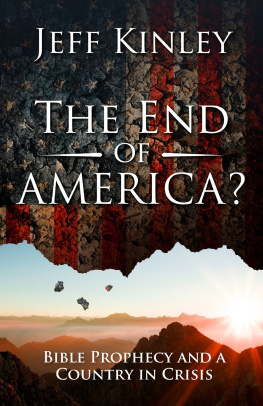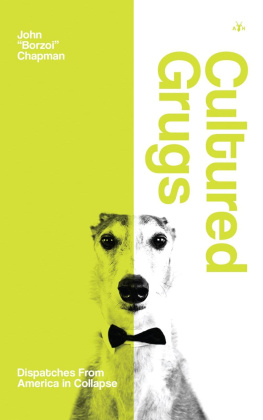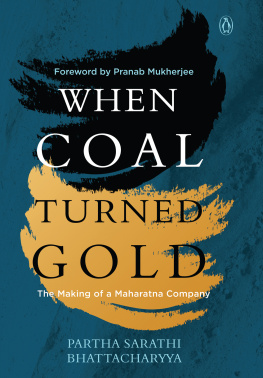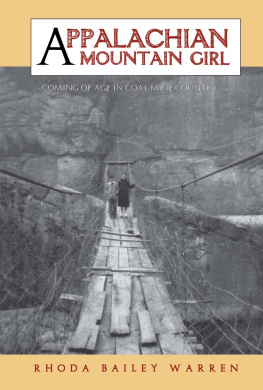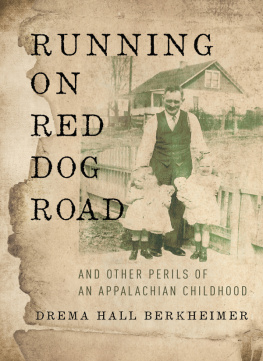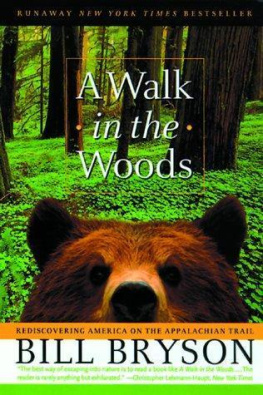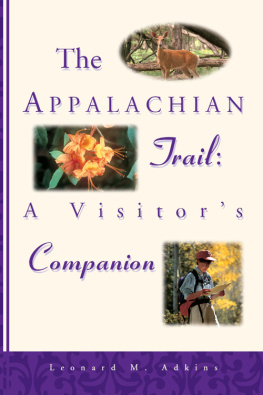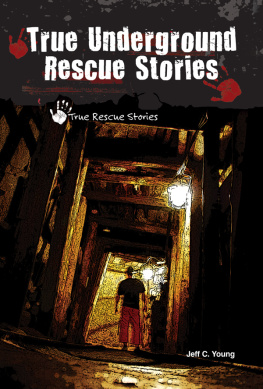Jeff Young - Appalachian Fall: Dispatches from Coal Country on Whats Ailing America
Here you can read online Jeff Young - Appalachian Fall: Dispatches from Coal Country on Whats Ailing America full text of the book (entire story) in english for free. Download pdf and epub, get meaning, cover and reviews about this ebook. year: 2020, publisher: Tiller Press, genre: Politics. Description of the work, (preface) as well as reviews are available. Best literature library LitArk.com created for fans of good reading and offers a wide selection of genres:
Romance novel
Science fiction
Adventure
Detective
Science
History
Home and family
Prose
Art
Politics
Computer
Non-fiction
Religion
Business
Children
Humor
Choose a favorite category and find really read worthwhile books. Enjoy immersion in the world of imagination, feel the emotions of the characters or learn something new for yourself, make an fascinating discovery.

- Book:Appalachian Fall: Dispatches from Coal Country on Whats Ailing America
- Author:
- Publisher:Tiller Press
- Genre:
- Year:2020
- Rating:5 / 5
- Favourites:Add to favourites
- Your mark:
- 100
- 1
- 2
- 3
- 4
- 5
Appalachian Fall: Dispatches from Coal Country on Whats Ailing America: summary, description and annotation
We offer to read an annotation, description, summary or preface (depends on what the author of the book "Appalachian Fall: Dispatches from Coal Country on Whats Ailing America" wrote himself). If you haven't found the necessary information about the book — write in the comments, we will try to find it.
Jeff Young: author's other books
Who wrote Appalachian Fall: Dispatches from Coal Country on Whats Ailing America? Find out the surname, the name of the author of the book and a list of all author's works by series.
Appalachian Fall: Dispatches from Coal Country on Whats Ailing America — read online for free the complete book (whole text) full work
Below is the text of the book, divided by pages. System saving the place of the last page read, allows you to conveniently read the book "Appalachian Fall: Dispatches from Coal Country on Whats Ailing America" online for free, without having to search again every time where you left off. Put a bookmark, and you can go to the page where you finished reading at any time.
Font size:
Interval:
Bookmark:
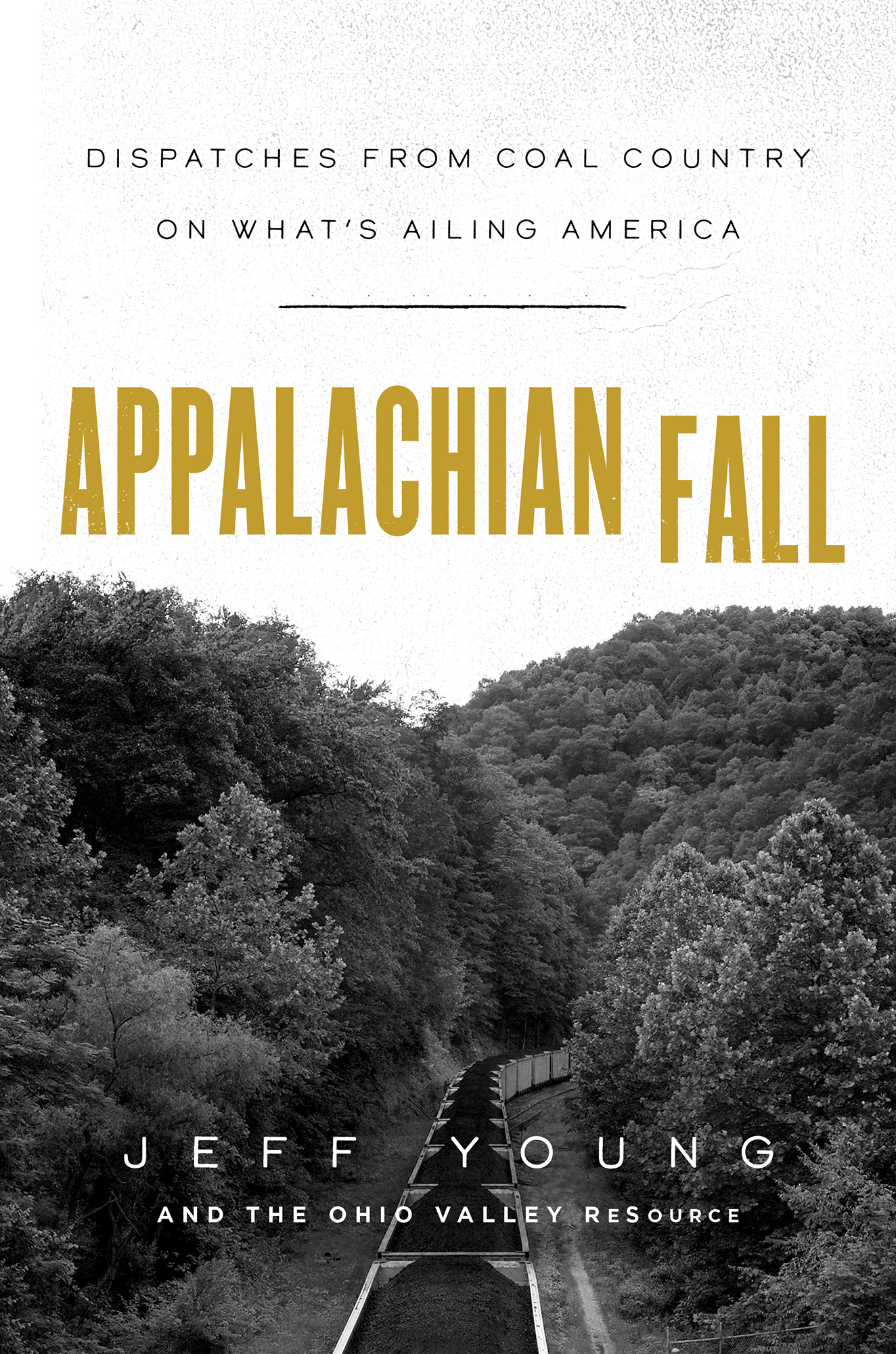

To all who make public media possible.
W E DIDNT YET have cable when I was growing up on Malcolm Lane in Wayne County, West Virginia, but I still managed to watch far more television than any kid probably should. The rooftop antenna pulled down three fuzzy channels, maybe four on a good day, but they delivered local commercials and jingles so effectively that I can clearly recall many today. There was a dancing cartoon pig with a top hat and cane who sold meat. There was a car dealership with giant American flags (the kind of dealership where my father would later work).
There was also one commercial that I often thought of as I worked on this book. It was an ad for the states coal industry. Even as a kid, I remember thinking it odd that the coal companies would run TV commercials. Did they think I could pop to the store and buy a lump of coal? What were they selling, exactly?
The ad made mining look heroic (as it is, in many ways). As a group of miners emerged from a dark portal, music swelled and a male chorus delivered the ads anthemic message:
Coal! Is West Virginia!
Not just part of, mind you. Not just important to. Is.
As in: one does not exist without the other.
It was a bold statement. But I doubt many people watching at the time would have argued. If any industry could lay claim to actually being an entire state, surely it was this one. Coal ran deep in the states economy, politics, and history. The same is true for many other parts of Appalachia, which have been at the mercy of resource extraction for more than a century.
As I learned about and reported on the coal industrys many ill effects over the years, from gob piles to global warming, the old song took on a different, darker tone for me. It carried a not-so-subtle message for anyone who would question the industry or propose an alternate vision of what West Virginia or Appalachia might be.
Only then did I begin to realize what that commercial was really selling: a belief system. The belief that no matter how much damage mining did to the land, water, air, and people, it was a small cost compared to the thought of life without coal.
If coal is your place, then without it, what are you?
THAT IS ONE of the questions the Ohio Valley ReSource has been trying to answer for the past four years. The ReSource is a regional journalism collaborative established in 2016, when seven public media outlets in Kentucky, Ohio, and West Virginia formed a partnership. With funding from the Corporation for Public Broadcasting, these stations hired a team of eight journalists. These public media partners are helping to restore local journalism in underserved communities, where, in many cases, the contraction of the newspaper industry has left news deserts.
The ReSource is also helping to tell the regions story to national audiences in a way that is rooted in and authentic to the communities we serve. Rural communities, and Appalachians in particular, are often wary of how they are portrayed in the national media, and with good reason.
Because the ReSource reporters live and work in the places they cover, the resulting narratives better reflect the complexities, history, and nuances of those communities. We do not flinch from the many problems here, but we remain open to the solutions, and we recognize our subjects as people with agency, not simply victims of circumstance. As a friend once told me, journalism should be something that happens in a place, not something that happens to a place.
This book draws upon that body of reporting to explore the health, work, and environment of a place undergoing extraordinary change. Coal, heavy manufacturing, and agriculture, the very vertebrae of Appalachian employment, are all in wrenching transformation, and with that, the regions traditional, rural ways of life are also changing. For many, those changes are not for the better.
Most of what you read here comes from stories directly reported by the ReSource team and our occasional partner on investigative work, NPR. Any information that draws upon other work is noted as such. We learned a lot in researching these pieces, and we hope you will do the same in reading them.
ONE IMPORTANT THING we have learned is that the very name Appalachia is so fraught with stereotype that it is often hard to see it with clear eyes, especially in this political moment. We hope to offer some clarity in these pages by spotlighting a diversity of regional perspectives and experiences. But we must ask a favor of you, dear reader. Please set aside any notions that you may have about Appalachia as a place apart, and consider it, instead, as a part of America.
In fact, we argue here that the resolution to many of Americas most pressing challenges lies in better understanding and addressing Appalachias conundrum.
If we are really serious about climate change, for example, the solutions must include those people who fear they have the most to lose in a clean-energy transition. If automation displaces more workers, as many experts predict, there are likely important lessons from a place experiencing mass economic displacement. And if we are to fully reckon with the rising effects of income inequality or the mounting toll from an addiction epidemic, does it not make sense to look to a place that has been dealing with those very things for decades?
Heres another thing that we have learned. That old coal industry sloganthat this place is nothing more than coalisnt true. There was an Appalachia long before the coal industry and there will be one long after the last mine closes. The question is, what will that Appalachia be? And will other Americans recognize that their fates, too, are tied to its future?
Jeff Young, on behalf of the ReSource team
C HARLES WAYNE STANLEY ran underground mining machines for some twenty years, cutting coal from beneath the hills where Virginia meets Kentucky along the Cumberland Ridge. He spent another decade or so as a roof bolter, work that kept the rock above from falling in on his fellow miners.
By age fifty-three, when the ReSource and NPR interviewed him, Stanley was disabled and no longer mining. But in his heart he was still and would always be a miner. Listen to Stanley and youll hear a common coal country refrain.
Its time that we be recognized for what we have contributed. America owes its coal miners, Stanley said, for the sacrifices they made to provide the country power.
It was coal miners that put this nation on the map, Stanley said, growing agitated. Without coal there would have been no Industrial Revolution, there would be no New York City, nothing on these grounds of this United States, this great nation we live in, if it hadnt come from the back of a coal miner.
Miners like Stanley are a proud lot, and rightly so. Billions of dollars in mineral wealth flowed out of Appalachia, on barges moving down the Ohio River to power stations, on trains winding north to steel mills. Coal fueled the Industrial Revolution and the great war machine that defeated facism.
But in the early twenty-first century, as America moves away from its nineteenth-century fuel, the place that powered the nation is falling further behind in key measures of health and wealth. Amid the collapse of a keystone industry and the rise of an addiction epidemic, many parts of coal country are at risk of falling apart.
Font size:
Interval:
Bookmark:
Similar books «Appalachian Fall: Dispatches from Coal Country on Whats Ailing America»
Look at similar books to Appalachian Fall: Dispatches from Coal Country on Whats Ailing America. We have selected literature similar in name and meaning in the hope of providing readers with more options to find new, interesting, not yet read works.
Discussion, reviews of the book Appalachian Fall: Dispatches from Coal Country on Whats Ailing America and just readers' own opinions. Leave your comments, write what you think about the work, its meaning or the main characters. Specify what exactly you liked and what you didn't like, and why you think so.

